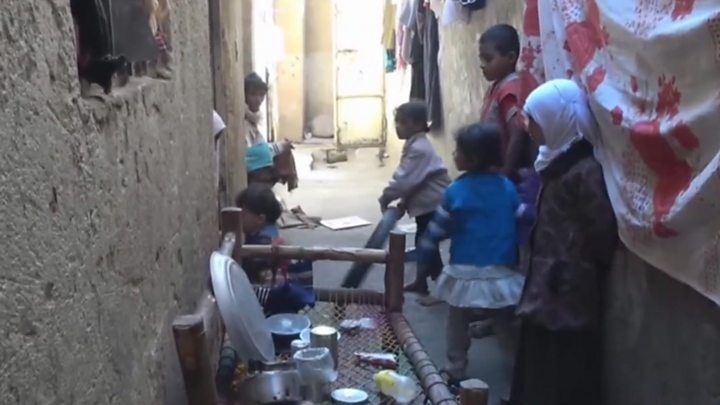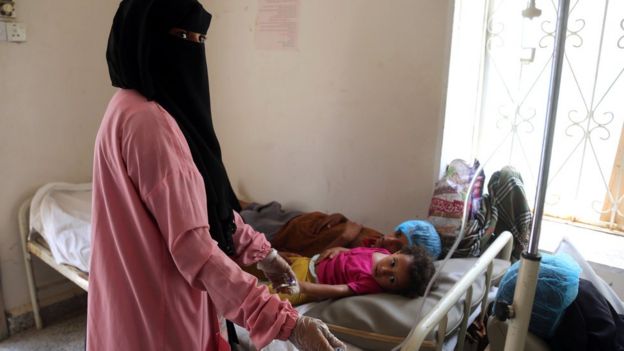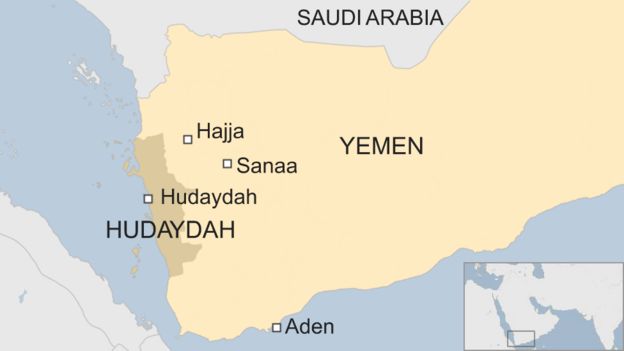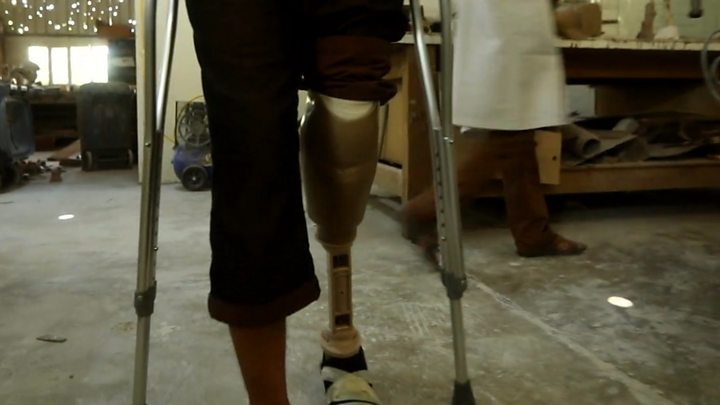Saudi-backed government forces have begun an assault on the key Yemeni port of Hudaydah, which is held by rebels.
The port is the main point of entry for aid for people in rebel-held areas and agencies have warned of a humanitarian catastrophe if it is attacked.
About eight million people in the war-torn country are at risk of starvation.
Bombing started after Iranian-backed Houthi rebels ignored a deadline to withdraw from Hudaydah by midnight (21:00 GMT on Tuesday).
It is the first time the Saudi-led coalition of mostly Gulf states has tried to capture such a well-defended major city in Yemen.

The conflict has raged since late 2014, when the Houthis and allied forces seized north-western parts of the country, including the capital Sanaa, and eventually forced President Abdrabbuh Mansour Hadi to flee abroad.
Alarmed by the rise of a group they saw as an Iranian proxy, Saudi Arabia and eight other Sunni Arab states launched a military campaign in March 2015 to restore Mr Hadi’s government.
Why does Hudaydah matter?
The Saudi-led coalition has accused the rebels of using Hudaydah to smuggle in Iranian weapons. Both Iran and the rebels deny this.
The coalition says victory could break the stalemate in the war and force the Houthis to the negotiating table.
But the port is a lifeline for the majority of Yemen’s population and the UN had been trying to get parties to the conflict to reach a deal that would avert an attack.
An estimated 600,000 people live in the area. The head of the UN’s refugee agency, Filippo Grandi, called on both sides to reach a negotiated settlement.
On Friday, UN Humanitarian Co-ordinator for Yemen Lise Grande warned: “In a prolonged worst case, we fear that as many as 250,000 people may lose everything – even their lives.”
 Image copyrightGETTY IMAGES
Image copyrightGETTY IMAGES
How have operations unfolded?
On Tuesday, the exiled government said its forces and allied Saudi-led troops launched their assault after “exhausting all peaceful and political means”.
The Saudi-owned Al Arabiya network reported early on Wednesday that the “liberation” of Hudaydah had begun with a large-scale ground assault supported by air and naval cover from a Saudi-led coalition.
Coalition warplanes and warships carried out strikes against rebel positions around the city.

“The liberation of Hudaydah port is a turning point in our struggle to recapture Yemen from the militias that hijacked it to serve foreign agendas,” the exiled government said.
On Tuesday, the rebels said they would “confront the coalition of aggression on all fronts”.
How serious is the humanitarian crisis?
About 10,000 people – two-thirds of them civilians – have been killed in the fighting since March 2015, according to the UN.
The vast majority of the casualties have been the result of coalition air strikes. The UN’s figures do not include those who have died of disease and malnutrition.
The conflict and a partial blockade by the coalition have also left 22 million people in need of humanitarian aid. It has created the world’s largest food emergency and led to a cholera outbreak that is thought to have killed 2,290 people.



Comments